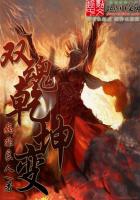When the wind is north, the sound carries as far as my road, and companies me through the day; and if to His dumb children God in His mercy reckons work as prayer, most certainly those who have forged through the ages an unbroken chain of supplication and thanksgiving will be counted among the stalwart labourers of the house of the Lord.
Sun and bell together are my only clock: it is time for my water drawing; and gathering a pile of mushrooms, children of the night, I hasten home.
The cottage is dear to me in its quaint untidiness and want of rectitude, dear because we are to be its last denizens, last of the long line of toilers who have sweated and sown that others might reap, and have passed away leaving no trace.
I once saw a tall cross in a seaboard churchyard, inscribed, "To the memory of the unknown dead who have perished in these waters."There might be one in every village sleeping-place to the unhonoured many who made fruitful the land with sweat and tears.
It is a consolation to think that when we look back on this stretch of life's road from beyond the first milestone, which, it is instructive to remember, is always a grave, we may hope to see the work of this world with open eyes, and to judge of it with a due sense of proportion.
A bee with laden honey-bag hummed and buzzed in the hedge as I got ready for work, importuning the flowers for that which he could not carry, and finally giving up the attempt in despair fell asleep on a buttercup, the best place for his weary little velvet body.In five minutes - they may have been five hours to him - he awoke a new bee, sensible and clear-sighted, and flew blithely away to the hive with his sufficiency - an example this weary world would be wise to follow.
My road has been lonely to-day.A parson came by in the afternoon, a stranger in the neighbourhood, for he asked his way.He talked awhile, and with kindly rebuke said it was sad to see a man of my education brought so low, which shows how the outside appearance may mislead the prejudiced observer."Was it misfortune?" "Nay, the best of good luck," I answered, gaily.
The good man with beautiful readiness sat down on a heap of stones and bade me say on."Read me a sermon in stone," he said, simply;and I stayed my hand to read.
He listened with courteous intelligence.
"You hold a roadmender has a vocation?" he asked.
"As the monk or the artist, for, like both, he is universal.The world is his home; he serves all men alike, ay, and for him the beasts have equal honour with the men.His soul is 'bound up in the bundle of life' with all other souls, he sees his father, his mother, his brethren in the children of the road.For him there is nothing unclean, nothing common; the very stones cry out that they serve."Parson nodded his head.
"It is all true," he said; "beautifully true.But need such a view of life necessitate the work of roadmending? Surely all men should be roadmenders."O wise parson, so to read the lesson of the road!
"It is true," I answered; "but some of us find our salvation in the actual work, and earn our bread better in this than in any other way.No man is dependent on our earning, all men on our work.We are 'rich beyond the dreams of avarice' because we have all that we need, and yet we taste the life and poverty of the very poor.We are, if you will, uncloistered monks, preaching friars who speak not with the tongue, disciples who hear the wise words of a silent master.""Robert Louis Stevenson was a roadmender," said the wise parson.
"Ay, and with more than his pen," I answered."I wonder was he ever so truly great, so entirely the man we know and love, as when he inspired the chiefs to make a highway in the wilderness.Surely no more fitting monument could exist to his memory than the Road of Gratitude, cut, laid, and kept by the pure-blooded tribe kings of Samoa."Parson nodded.
"He knew that the people who make no roads are ruled out from intelligent participation in the world's brotherhood." He filled his pipe, thinking the while, then he held out his pouch to me.
"Try some of this baccy," he said; "Sherwood of Magdalen sent it me from some outlandish place."I accepted gratefully.It was such tobacco as falls to the lot of few roadmenders.
He rose to go.
"I wish I could come and break stones," he said, a little wistfully.
"Nay," said I, "few men have such weary roadmending as yours, and perhaps you need my road less than most men, and less than most parsons."We shook hands, and he went down the road and out of my life.
He little guessed that I knew Sherwood, ay, and knew him too, for had not Sherwood told me of the man he delighted to honour.
Ah, well! I am no Browning Junior, and Sherwood's name is not Sherwood.















